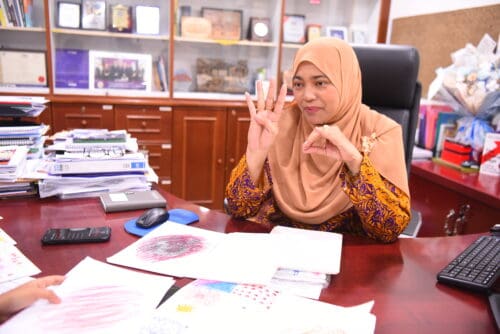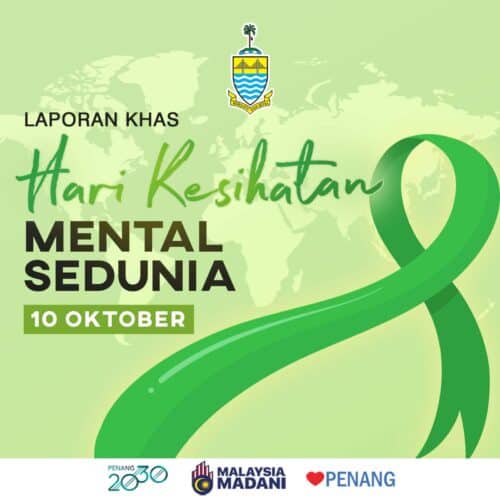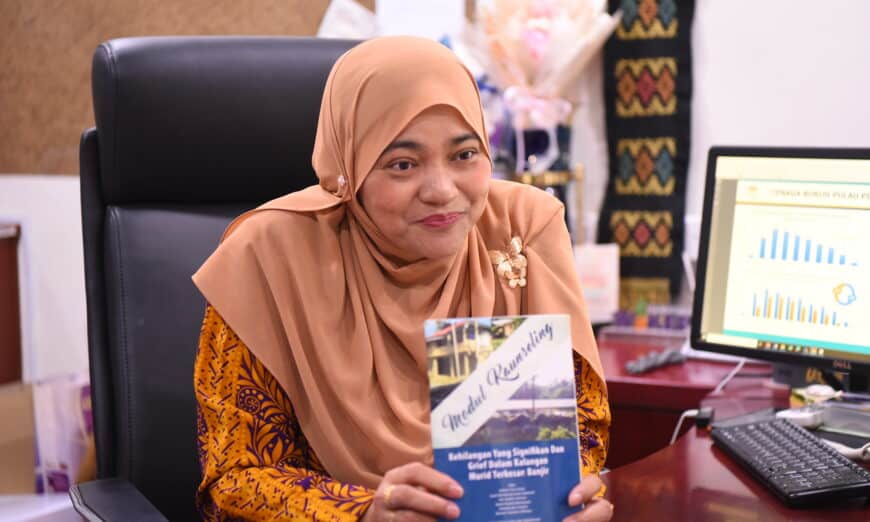AS MENTAL health issues become increasingly visible in Malaysia, experts are calling for a balance between innovation and empathy in addressing emotional wellbeing.
One of them, Assoc Prof Dr Rahimi Che Aman, Dean of the School of Educational Studies at Universiti Sains Malaysia (USM), believes that while technology and artificial intelligence (AI) can play a significant role in early detection and outreach, they can never replace the human touch in counselling.
“AI can help identify warning signs through digital interactions or behavioural patterns, especially among youth who spend much of their time online.
“But the essence of counselling lies in empathy, the ability to listen, connect, and understand human emotions.
“That part cannot be replicated by machines,” she said in an exclusive interview with Buletin Mutiara on Sept 29.
Dr Rahimi, who has years of experience in educational psychology and counselling, observed that Malaysia is seeing a steady rise in mental health awareness, but many still struggle to seek help due to stigma, cost, and accessibility.
She highlighted that emotional distress, anxiety, and burnout are among the most reported issues, especially in post-pandemic times.

“Increasingly, people are aware of mental health, but awareness alone is not enough.
“Some still hesitate to approach counsellors because they fear being judged, or they think only people with serious problems should seek help.
“We must normalise counselling as a form of emotional support, just as we visit a doctor for our physical health,” she remarked.
She pointed out that Malaysia’s mental health landscape is also evolving with demographic changes, particularly with an ageing population and growing urban stress.
The pressures of modern living, coupled with isolation and digital dependency, have created a new set of challenges that require adaptive and inclusive support systems.
“Even as we talk about technology, we must remember that our elderly, for instance, may not be comfortable using online counselling tools. Our solutions must fit their context and comfort levels,” she said.
On the role of AI, Dr Rahimi believes the technology holds promise in enhancing accessibility and efficiency, particularly through data analytics, chatbots, and digital mental health platforms.
However, she cautioned that such systems must be designed ethically and used responsibly.
“AI can be a good first responder. For example, it can provide immediate support through guided responses or link users to professional help.
“But there must always be human oversight. A machine can recognise distress signals, but only a human counsellor can truly understand and comfort,” she emphasised.

Today, people across the globe unite to celebrate World Mental Health Day, a day dedicated to raising awareness, breaking stigma, and prioritising emotional well-being.
She also stressed that technology should serve as a bridge, not a barrier to human connection.
“The danger is when people rely too much on automated responses and lose the personal engagement that makes counselling meaningful,” she added.
In addressing the future of mental health in Malaysia, Dr Rahimi urged for stronger collaboration among educational institutions, policymakers, and communities to make counselling services more visible and approachable.
“At USM, we constantly remind our students and staff that emotional wellness is as important as academic or professional success.
“When individuals feel supported, they contribute better to society,” she said.
She believes the next step forward involves not only expanding access to professional help but also cultivating emotional intelligence and resilience among Malaysians from a young age.
“Children need to learn how to identify and express their emotions. When we teach emotional literacy early, we create a more compassionate society,” she said.
Ultimately, Dr Rahimi’s message is one of balance, embracing technology while preserving humanity.
“AI can enhance what we do, but it cannot replace who we are,” she concluded.
Story by Kevin Vimal
Pix by Adleena Rahayu Ahmad Radzi

